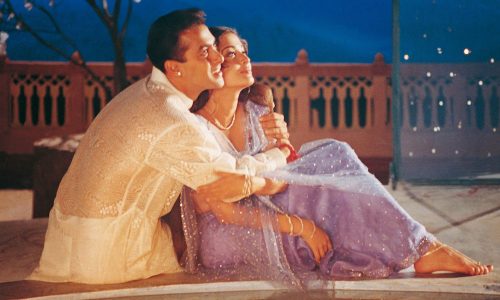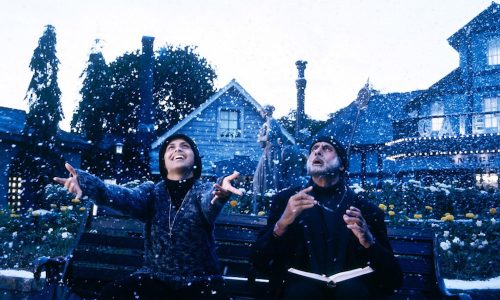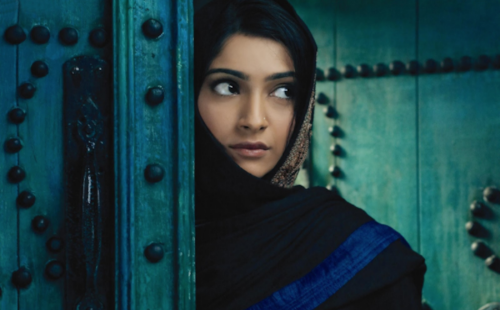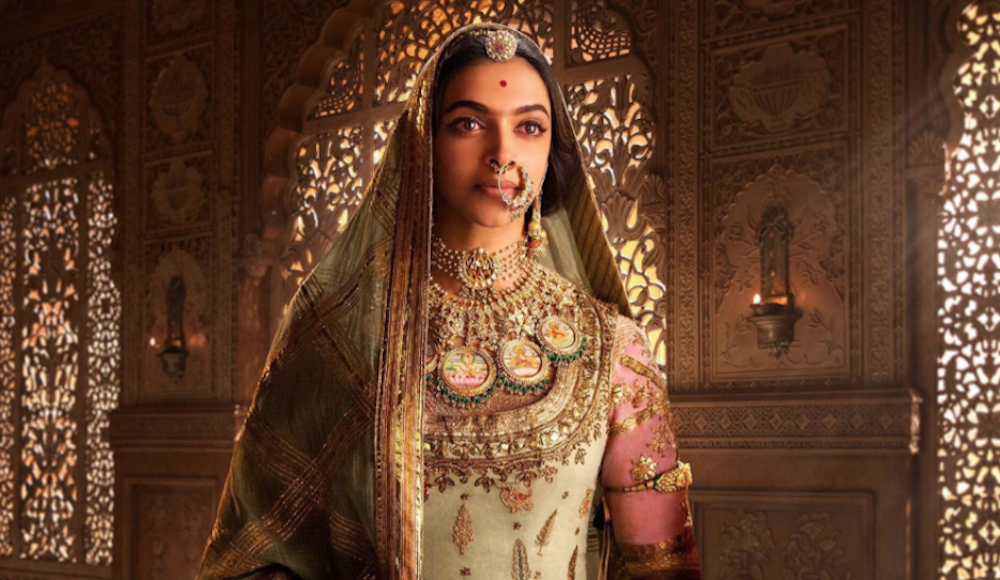by Prachi Jain – Follow @BrownGirlMag
When I stand at my kitchen sink washing dishes greased with a welter of Indian curries and sticky dough, I let my mind wander to experience a more colorful palette than the turmeric and paprika floating around with the soap suds. Through those iridescent hollow spheres, I see the embellished sets, the ebullient characters, and the unbridled imagination of Sanjay Leela Bhansali, especially given the highly anticipated release of his new movie, “Padmaavat.” I look for the surreal in the mundane.
Watching Bhansali’s movies is like peeling an onion. Each layer unfolds, revealing something new with each watch — sometimes a more tender part, sometimes the roots, a rot, more sting, more juice or a discoloration lurking inside. For all the ever-changing elements, the only constant in his movies is his passionate filmmaking.
“Hum Dil De Chuke Sanam” is an intense love story that brews under the nose of a large traditional family. It is woven with the same delicacy and tenderness given to embroidering intricate patterns on chiffon fabrics. There is not one thoughtless scene or dialogue that could possibly bore holes in the delicate fabric of this passionate love story. The strongest critics of mushy love stories pine for the lovers in this film to unite, and those very critics suffer hopelessly when the lady chooses her husband over her lover. The heartache of the lovers, the cinematography, the soulful music, the theatrics and the melodrama all seem to run full throttle, yet not amok.

We agree with the quadriplegic radio jockey in “Guzaarish” who is pleading with the justice system to grant him permission to end his life. It is difficult not to be torn apart between agreeing with the law and the protagonist’s heavily invested emotions.

There are others like “Khamoshi,” which, to me, was a stone-chiseled well to become a breathtaking statue, but it did not rake in the profits.

Subjective discrepancies apart, everyone agrees that the characters in Bhansali’s movies are multifaceted. Some are haughty, have attitude, are subservient, show spunk, embody power, portray weaknesses — each one of them is highly interesting and worth discussing. The Romeo-Ram of “RamLeela,” the music maestro of “Hum Dil De Chuke Sanam,” Paro, the essence of beauty and strength in ‘Devdas,’ the alcoholic teacher in “Black,” or the love-struck Bajirao in “Bajirao Mastani” — all of these characters bring to the screen an impressive array of dynamics, evoking in the audience a myriad of sensibilities.
[Read Related: The ‘Padmavati’ Debacle: Bollywood Progressivism Against Protests is Too Little Too Late]
From the exalted heights of the movies of Sanjay Leela Bhansali, I look down at the unending pile of dishes and look forward to watching “Padmaavat” when it hits theaters on Jan. 25.

Prachi works as a freelance copywriter. She likes to write short stories. With two kids, a part-time job, and an immense love for reading, writing and jogging, she is hard pressed for time – all the time. Her work has been published in Foliate Oak, Vending Machine Press, and Ascent Aspirations to name a few.





